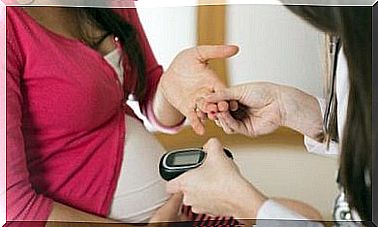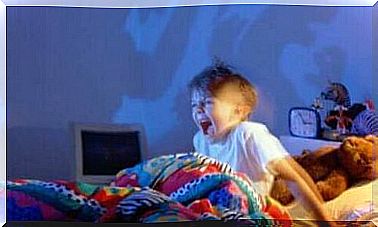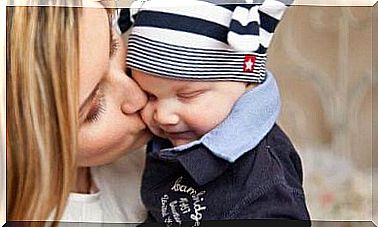Acetone In Children: Causes And Treatment
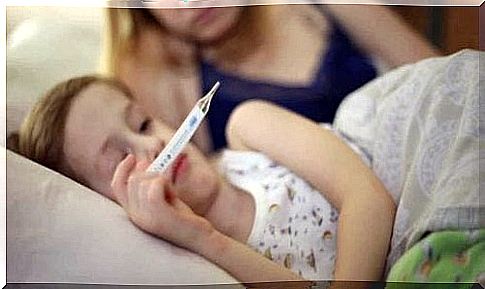
In children , very low glucose levels cause the body to burn fat as an alternative energy source. This produces a substance in children’s bodies called acetone. Do you know what the symptoms and treatment are?
Causes Of Acetone In Children
Acetone can occur in both healthy children and children with certain conditions. The cause therefore depends on the health of the child.
In healthy children
- Fasting for hours. If you don’t have breakfast or are late for lunch, the sugars in the body decrease.
- Improper nutrients. This can happen if the child consumes too much fat or animal protein or does not have enough sugar.
In children with certain diseases
- High fever. If the child has had a fever for a long time, then the body has worked very hard.
- Vomit. If the child has vomited several times, then he has eliminated excess sugars.
- Pharyngitis (inflammation of the pharynx). Due to the discomfort it causes, it prevents the child from eating food, or from having a loss of appetite causing prolonged fasting.
- juvenile diabetes. Low blood glucose can occur as a result of usual mealtime delays. On the other hand, for type 1 diabetes, blood glucose can rise due to the lack of insulin in the body.
Symptoms Of Acetone In Children
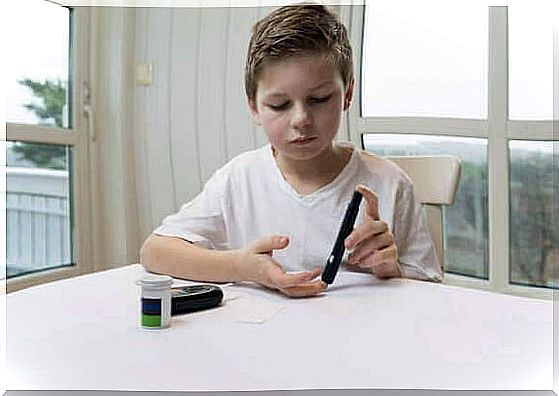
- Breath smells like ripe apples. Acetone is released when you exhale. When your child produces acetone, his breath smells like ripe apples.
- Urine with a very strong odor. When acetone escapes through urine, it gives off a strong odor.
- Drowsiness, loss of appetite, nausea, paleness and vomiting. This is due to very low blood glucose (hypoglycemia) in both healthy and diabetic children.
- Sticky mouth, dry tongue, digestive disorders and irritability. This is due to very high blood glucose levels (hyperglycemia). It occurs exclusively in children with diabetes, especially in children with type 1 who are insulin dependent. This is due to their lack of insulin, or they are getting less than the amount they need.
Treating Acetone

Before these symptoms appear, it is essential to consult a specialist to determine the appropriate treatment. In general, it includes the tips below.
- Diet. In healthy children, avoid fatty foods and try to make fruit juices. Give children with diabetes with hyperglycemia sugar-free liquids and avoid carbohydrates. For hypoglycemic children, give them liquids with sugar.
- Insulin. For children with type 1 diabetes (insulin dependent), you need to inject the correct dose.
- Peace. In both healthy and diabetic children, avoid a lot of movement when there is acetone in their bodies. This is because their bodies are forced to get energy from fats because there are no glucose stores. They will therefore increase the production of acetone.
- Controls. For healthy children, measure ketone bodies with urine tests. For diabetics, however, you measure both blood sugar and acetone via a glucometer.
Some recommendations
Acetone does not imply a disease, but we advise parents to know if it is present in their children’s bodies. The appearance of acetone is not serious if you act on time, but it is dangerous if it is present in large quantities or for a long time.
This is because it can cause symptoms that can threaten the health of healthy children. For children with illnesses, it can take control of them and their treatment.
It is important that you see your pediatrician if any symptoms appear. That way, he can analyze your child’s health and formulate a treatment plan so that it doesn’t cause any problems in the future.
